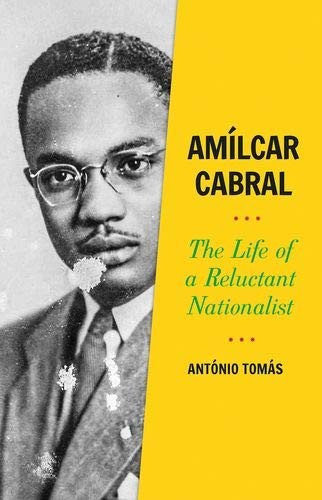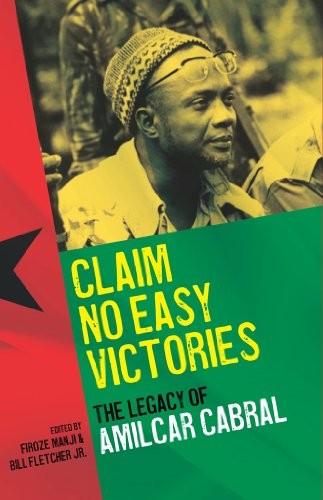Compared to other leaders of the struggle for dignity and freedom, Cabral has been covered less. I have posted about a few books: Davidson wrote a book in 1969, a 1977 book covered some of Cabral's work, and a 2013 edited book was inspired by Cabral. Antonio Tomas presents a biography of Cabral in "The Life of a Reluctant Nationalist" (2021), a few notes:
"The thinking of Salazar and his collaborators, in drawing up the Colonial Act, was based on social Darwinism. For them, humanity was divided into hierarchical categories, with the white/Western man at the top. Armindo Monteiro, one of the most prominent ideologues of Portuguese colonialism, who replaced Salazar as minister of the colonies (in this post from 1931-35), thought that "a great part of black societies, across the African continent were immobile within [the] old structures of organization" and that white man had to act fast in order to save these societies from death. For Monteiro, civilization was a long slope, at the top of which only the most skillful society could arrive. As the march of progress was unstoppable, natural selection would run its course. In a dozen or so years, he triumphantly added, the black races which could not scale the slopes of civilization would be wiped from earth." (p. 26)
"In one of the meetings with this group, Cabral was assigned a very dangerous mission. During a trip to Angola, between August and September 1959, he was given the task of recruiting eleven youths to be sent to Tunisia, where they were to receive training in guerilla tactics. The idea was once they were back in the country, they would form the "core operational group to jumpstart the armed struggle." The offer had been made by Frantz Fanon, at that time advisor to the GPRA, who, during the second Congress of Black Writers and Artists in Rome between 26 March and 1 April 1959 met with the Angolan representatives, namely Viriato da Cruz, Lucio Lara and Mario de Andrade, in the basement of a small coffee bar. Fanon, who was yet to write his famous The Wretched of the Earth, explained to them that he meant to export the "Algerian model" of anti-imperialist struggle to Angola as a way to scatter the forces of NATO, which supported France in war against the Algerian nationalist." (p. 69)
"Che Guevara met Cabral on 12 January 1965 during his trip to Africa, and they forged a lasting link. However, effective military and humanitarian aid only came after Cabral's first trip to Cuba to take part in the Tricontinental conference in Havana, in January 1966. Fidel Castro was impressed with Cabral's speech and took him on a personal trip to the Escambray Mountains. During this trip, Castro committed to assisting the national liberation movement in Africa with supplies namely tobacco, cotton, sugar, uniforms, trucks, and ammunition. Castro also sent drivers and mechanics to operate and maintain the trucks. but more importantly, Castro sent a group of Cuban doctors, who, during the war, were the only doctors to operate in the interior of Guinea." (p. 180)


